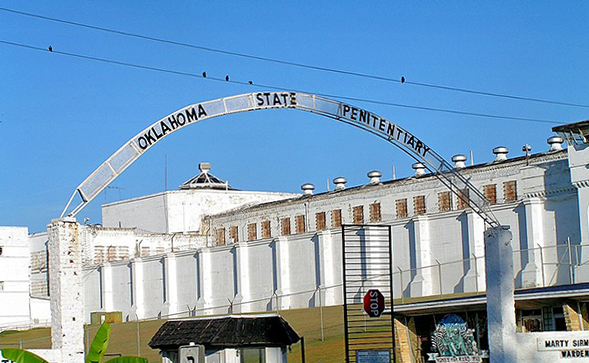
This November, Oklahoma voters have the opportunity to enact overdue change to the state’s criminal justice system that could save taxpayers up to 186 million dollars.
Earlier this month, Gov. Kevin Stitt directed the State Election board to place the measure, State Question 805, on the general election ballot. SQ 805 would eliminate sentence enhancements which automatically add extra years to prison sentences for repeat nonviolent offenders.
Oklahoma was ranked the worst state for incarceration rates in the U.S. in 2018. That same year, the Sooner State was dubbed “the world’s prison capital” for also having the highest rate of incarceration in the world.
While Oklahoma has since slightly improved to 47th in incarceration nationally, passing SQ 805 is urgently needed to help the state make more substantial progress in the right direction. Because sentence enhancements are used in four out of every five cases Oklahoma, it is estimated that the passage of SQ 805 should reduce the state prison population by 8.5% over ten years.
Sentencing enhancements have failed to serve public safety, as they penalize offenders beyond what is reasonable for their offense. It also subjects offenders to extended incarceration which does damage to their ability to find work and become productive members of society upon their release.
“Data shows that in the case of incarceration versus remaining in the community, there was a 7% increase in recidivism for those offenders who were in prison. Researchers also find an increased likelihood that lower-risk offenders will be more negatively affected by incarceration,” states Families Against Mandatory Minimums (FAMM).
On top of SQ 805 having the potential to be a ground-breaking moment in the Oklahoma’s criminal justice reform process, it also has the capability to yield taxpayers a significant amount of savings.
According to a fiscal analysis done by the Oklahoma Council of Public Affairs, eliminating sentence enhancements for nonviolent offenses could reduce state expenses anywhere between $45 million and $186 million over the next 10 years. The wide range of fiscal savings depends on the rate at which the state would respond to a lower prison population at its 16 state institutions. Without any facility closures, the passage of SQ 805 would save $45 million. On the higher end, closing several state institutions could result in savings as high as $186 million. A reasonable projection, however, is that Oklahomans would save about $142 million, assuming that the state would be able to close several aging state prison facilities.
Oklahomans have the chance to improve their criminal justice system and save taxpayer dollars in the process. SQ 805 would directly impact the lives of thousands of people who were victims of overzealous sentencing rules, making the passage of this ballot measure a critical step towards more justice and a more free state.

